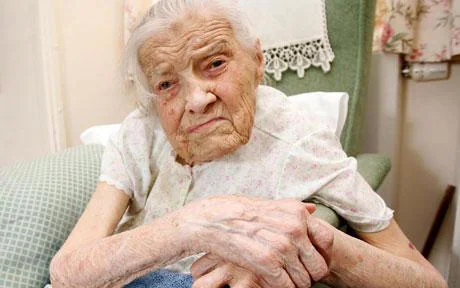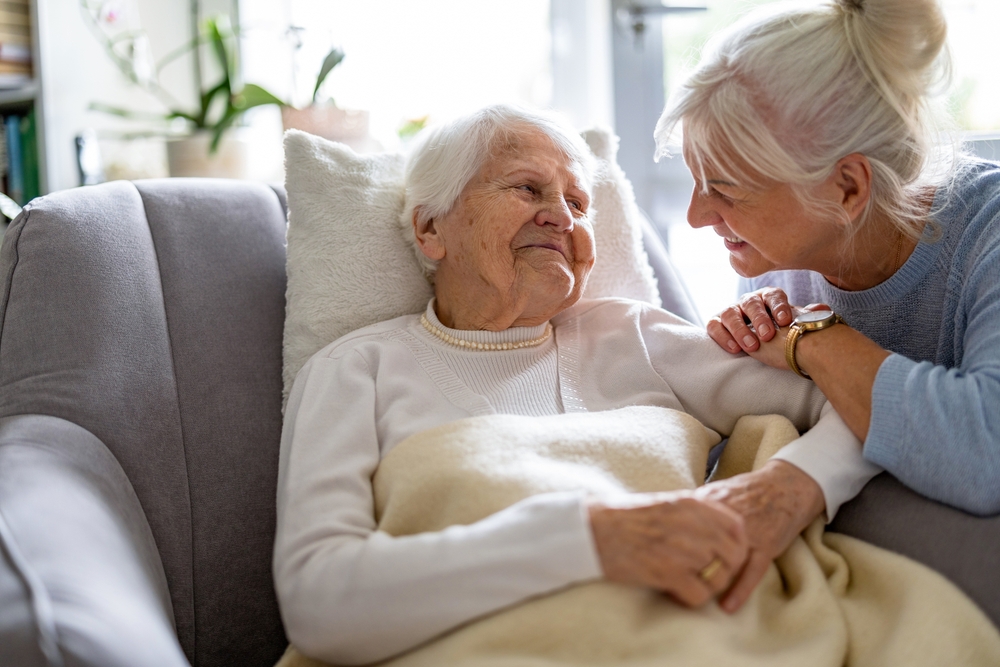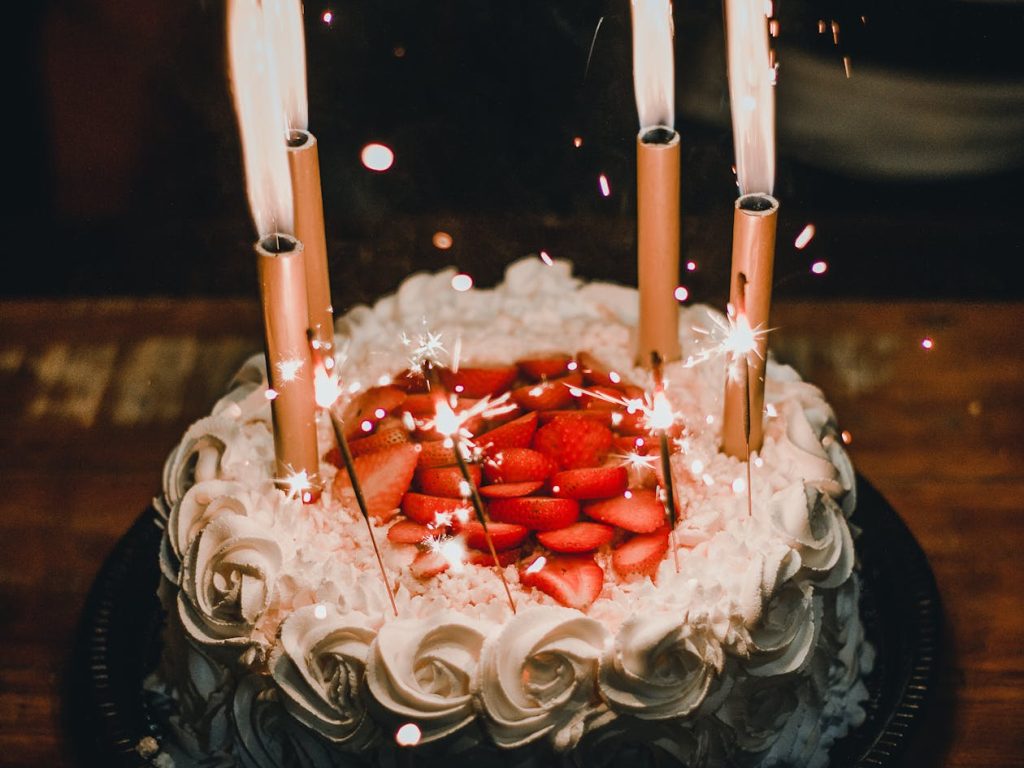Your cart is currently empty!
She Decided at Age 12 to Stay Celibate and Lived 108 Years Without Regrets

Some secrets take a lifetime to reveal. Clara Meadmore carried one for over a century, and when she finally shared it with the world, people had questions. Lots of them.
Born in 1903 in Glasgow, Clara lived through two world wars, witnessed the Titanic, saw the death of Queen Victoria, and experienced more change than most people could fathom. She traveled across continents, worked during wartime, and built a life entirely on her own terms. When she passed away in 2011 at 108 years old, she left behind a story that challenged everything society expected of women in her era.
What made Clara exceptional wasn’t just her longevity. Plenty of people live past 100. What set her apart was a choice she made as a child and never questioned for the rest of her days.
Clara Meadmore died a virgin. By choice. And she had no regrets about it.
Decision Made at Just 12 Years Old
Most 12-year-olds worry about school, friends, and what’s for dinner. Clara Meadmore decided her entire romantic future at that age. In 1915, as World War I raged across Europe, young Clara made up her mind about something that would define her life.
She would never marry. She would never have sex. And she meant it.
“I made my mind up at the age of 12 never to marry and I’ve not gone back on that,” Clara said in interviews during her later years. For nearly a century after that childhood decision, she stuck to her guns. No boyfriends. No intimate relationships. No wavering.
People questioned her choice repeatedly throughout her life. Friends wondered if she felt lonely. Strangers asked intrusive questions. But Clara remained firm. She knew what she wanted, or rather, what she didn’t want, and nothing changed her perspective.
“I Imagine There’s a Lot of Hassle Involved”

When pressed to explain her lifelong celibacy, Clara’s reasoning was refreshingly practical. Romance and sex seemed like complications she had no interest in navigating. She had other things to do with her time.
Speaking on her 105th birthday in 2008, Clara offered her straightforward assessment of intimate relationships. She had watched others struggle through the ups and downs of romance, and none of it appealed to her. While her peers pursued courtship and marriage, Clara pursued independence and adventure.
Her perspective wasn’t rooted in trauma or fear. Sex simply seemed unnecessary. Marriage felt like an obligation she didn’t want to shoulder. In an era when women were expected to define themselves through relationships with men, Clara quietly refused to play along.
She had male friends throughout her life. Several men proposed marriage to her. But she turned them all down without hesitation. Platonic friendships satisfied her social needs. Anything beyond that felt superfluous.
Growing Up When Girls Were Seen and Not Heard
Clara’s childhood shaped her fierce independence. Born at the turn of the 20th century, she grew up in an era that offered women few choices and even fewer opportunities. Society expected girls to be quiet, obedient, and grateful for whatever scraps of autonomy men allowed them.
Clara refused to accept those limitations. “I grew up in an era where little girls were to be seen and not heard, so I had to stand up for myself and earn a living,” she explained. While other women waited for husbands to provide for them, Clara learned to provide for herself.
Getting an education and securing employment weren’t easy for women in the 1920s. Many employers preferred men. Families often prioritized sons over daughters when allocating resources for schooling. But Clara pushed forward anyway, determined to build a life that didn’t require male approval or financial support.
Her independence came at a cost. Some men found her self-sufficiency threatening. Others lost interest when they realized she wouldn’t play the submissive role expected of women. But Clara didn’t care. She valued her freedom more than social acceptance.
From Glasgow to Egypt to New Zealand and Back

Adventure called Clara early. When she was seven years old, her family embarked on an extraordinary journey that took them far from Scotland. First Egypt, then Canada, then New Zealand. For a girl born in the early 1900s, such extensive travel was rare and exciting.
But by her twenties, Clara wanted to return home. Her family remained abroad, but she yearned for Britain. So she saved up $635 USD, a substantial sum at the time, and made the journey back alone. A young woman traveling across the world solo in the 1920s raised eyebrows, but Clara never let social conventions dictate her choices.
Back in Britain, she worked as a housekeeper and secretary. These jobs gave her financial stability and purpose. She didn’t need a husband to survive. She didn’t need someone else to give her life meaning. Work filled her days, and she found satisfaction in her independence.
Serving Her Country During World War II
When World War II broke out, Clara answered the call to serve. She traveled to Egypt and joined the army in an administrative capacity. Her secretarial skills proved valuable, and she spent the war years doing her part for Britain while stationed abroad.
Military service suited Clara. She worked alongside men as colleagues and equals. Nobody pressured her about marriage or children. She had a job to do, and she did it well. After the war ended, she continued building her life according to her own blueprint.
Walking, Wine, and a Life Lived on Her Own Terms

When people asked Clara about her longevity, she pointed to simple habits. Walking topped her list. She became one of the earliest members of the Youth Hostel Association in Britain, and she walked regularly throughout her life. Fresh air and exercise kept her body strong well into her second century.
She also enjoyed the occasional glass of wine. Nothing excessive, just enough to savor. Reading filled many hours, as did listening to Radio 4, particularly Woman’s Hour. Gardening brought her joy. She participated actively in the Women’s Institute, organizing events and teaching keep-fit classes.
Her hobbies and interests kept her engaged with life. She didn’t need romance to feel fulfilled. Books, radio programs, walks through the countryside, and friendships with other women provided all the enrichment she sought. Sex and marriage would have been distractions from the life she wanted to live.
“People Have Asked Whether I Am Homosexual”
Clara knew what people whispered. A woman who never married, never dated, never showed interest in men? Society had labels ready. But Clara addressed the speculation head-on.
“People have asked me whether I am homosexual and the answer is no. I have just never been interested in sex,” she stated plainly. She wasn’t gay. She wasn’t asexual in the modern sense, though that term might have fit. She simply found sex unappealing and saw no reason to pursue it.
Her lack of interest extended to both genders. She didn’t desire women any more than she desired men. Romantic and sexual attraction simply weren’t part of her makeup. She never felt she was missing anything.
Platonic Friendships Without the Complications

Despite her disinterest in romance, Clara maintained rich social connections throughout her life. She had male friends who respected her boundaries. Several men proposed marriage, but she declined without damaging the friendships. She proved that men and women could have meaningful platonic relationships when both parties agreed to the terms.
Her female friendships sustained her most. Women’s Institute gatherings, visits with neighbors, and conversations over tea provided companionship without expectations. She built a community around herself that accepted her choices.
Clara’s best friend, Josie Harvey, visited her daily in her final years. Josie understood what made Clara tick and admired her friend’s strength. At 72 years old herself, Josie recognized that Clara defied every stereotype about elderly women.
Living Alone Until 104
Independence defined Clara’s life. After retiring to Cornwall in the 1960s, she lived alone for decades. She managed her own household, took care of herself, and needed no assistance. While other centenarians required round-the-clock care, Clara remained self-sufficient well past 100.
She finally moved into Perran Bay nursing home in Perranporth, Cornwall, when she turned 104. Even then, staff noted that she acted nothing like her age. Her mind stayed sharp. Her opinions remained strong. She knew what she wanted and voiced it clearly.
“Maybe Never Having a Man Under Her Feet Kept Her Young”
Josie Harvey offered her own theory about Clara’s remarkable vitality. Speaking when Clara turned 105, Josie mused about what kept her friend so youthful. “You’re as young as you feel. Clara is by no means 105 in many ways. Maybe never having a man under her feet has kept her young all these years.”
Josie had a point. Clara never dealt with the stress of difficult marriages or painful divorces. She never sacrificed her own goals to support a husband’s ambitions. She never compromised her independence or second-guessed her choices. Perhaps that freedom contributed to her longevity as much as the walking and wine.
Celebrating Birthdays with the Queen’s Card and a Drop of Wine

Clara’s later birthdays became newsworthy. At 105, 107, and beyond, reporters sought her out. People wanted to know her secrets. She received birthday cards from Queen Elizabeth II, a tradition for British citizens who reach extreme old age.
But Clara never wanted big celebrations. She preferred quiet gatherings with friends at the nursing home. A glass of wine from her favorite beaker. A few close companions. Nothing fancy or showy. She remained unpretentious until the end.
Even at 105, she joked about her choices. When planning her birthday celebration, she noted that she was “hardly likely to get drunk and do something silly” at her age. Her sense of humor stayed intact along with her convictions.
A Life Without Regrets
Clara Meadmore never looked back with regret. She never wished she had married. She never mourned missing out on sex or romance. She built exactly the life she wanted and lived it fully for 108 years.
Her story challenged assumptions about what women need to be happy. Society insisted that marriage and children were essential for female fulfillment. Clara proved otherwise. She found purpose in work, joy in friendships, and contentment in solitude.
When she passed away in 2011, she left behind a legacy of autonomy and self-determination. Clara Meadmore lived life on her own terms from age 12 until the very end. Few people can make that claim. Even fewer would have the courage to make such an unconventional choice and stick with it for over a century.
Her secret to a long life? Maybe it was the walking. Maybe it was the wine. Or maybe it was the simple freedom of never compromising who she was for anyone else.
